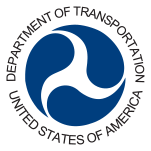Audit Reports
PHMSA Has Addressed Most Weaknesses We Identified in Its Special Permit and Approval Processes
Summary
The Pipeline and Hazardous Materials Safety Administration (PHMSA) regulates about 1 million transports of hazardous materials (hazmat) a day under its Hazardous Material Regulations (HMR). However, numerous businesses and Government agencies move many of these materials by truck, rail, and other transportation modes under special permits from PHMSA that provide exceptions to HMR requirements. Similarly, entities that perform functions that require prior consent under the HMR—such as classifying explosives and manufacturing cylinders for transport—must first receive written approval from PHMSA’s Associate Administrator for Hazardous Materials Safety.
In 2009 and 2010, we reported on weaknesses in PHMSA’s processes for granting special permits and approvals and made recommendations for improving the effectiveness of PHMSA’s oversight of hazmat transport safety. We conducted this audit to assess PHMSA’s progress in addressing those weaknesses. Specifically, we assessed whether PHMSA (1) implemented standard operating procedures (SOP) and addressed weaknesses highlighted in our prior reports, and (2) has improved information technology that supports its special permit and approval processes.
PHMSA has implemented SOPs and addressed weaknesses that we found during our previous audit work. The SOPs describe processes for assessing the fitness of entities applying for special permits and approvals and evaluating measures for achieving safety levels required by the HMR. PHMSA processed all sampled special permit applications and most sampled approval applications in accordance with the SOPs. However, files for several applications for explosives classification approvals lacked evaluation forms that document the reasons for technical officers’ safety recommendations. PHMSA took steps during our audit to address this internal control weakness. The Agency also appropriately coordinates applications with other operating administrations based on SOP criteria when applications are mode-specific, precedent setting, or meet a specific condition, such as transporting lithium ion batteries by air. PHMSA has also conducted inspections and taken other steps to strengthen its oversight of third-party agencies that inspect cylinder applicants, test explosives, and certify hazmat packaging on PHMSA’s behalf.
PHMSA has begun improving the information technology that supports its special permit and approval processes but has delayed implementation of one system, the Portal, because of issues with its module for processing special permit applications. Module users found it difficult to accurately identify some applicant companies and their locations. PHMSA is working to resolve the issue but Agency representatives stated that they need to secure additional funding. As a result, the Agency is not benefitting from the efficiency of the Portal’s processes and improved analytical capabilities, and consequently, not using its resources in the most effective way.
PHMSA concurred with our recommendations to improve its internal controls and effectively use the Portal.
